Things to Know About Dementia Screening
Dementia screening isn’t a one-size-fits-all approach. Doctors often recommend it after noticing changes in memory or thinking that disrupt a person’s daily activities. The screening process itself is thorough and uses various tests to create a detailed understanding of an individual’s cognitive function. Meet Dr. Kourosh Naini and get your dementia screening and assessment at iVIE. For more information, contact us or book an appointment online. We are located at 11600 Washington Pl, Suit 104A, Culver City, CA 90066.
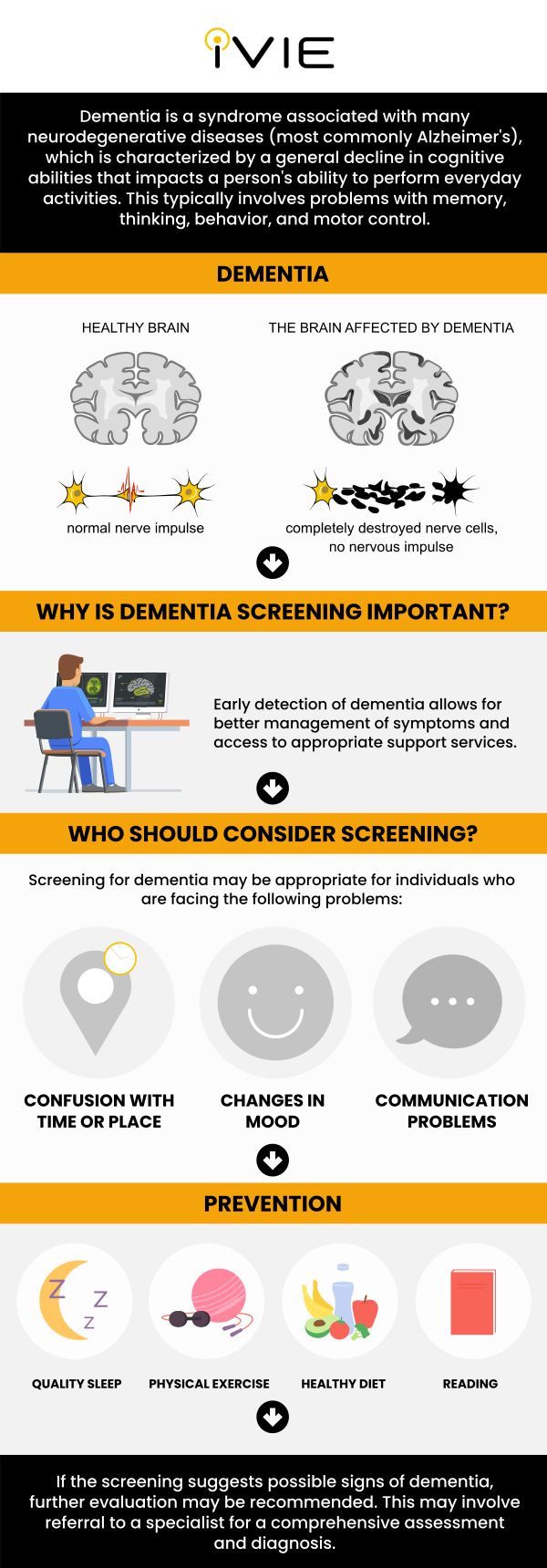
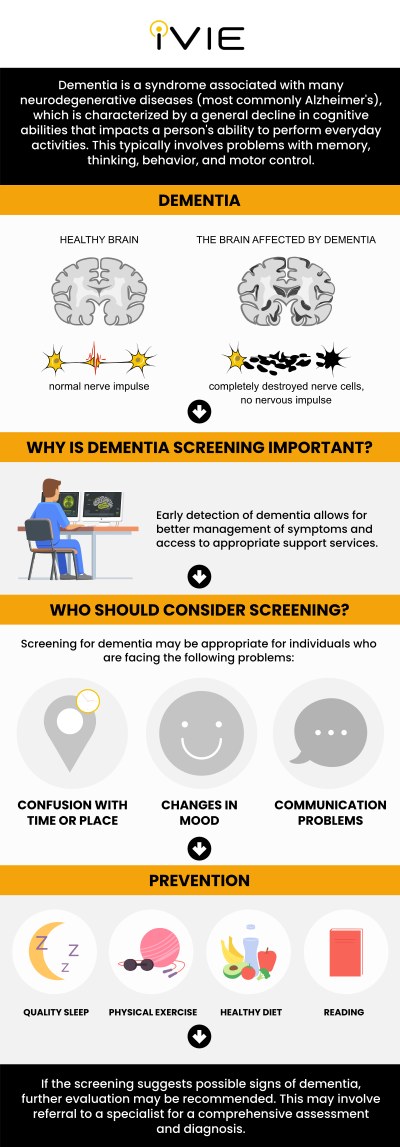
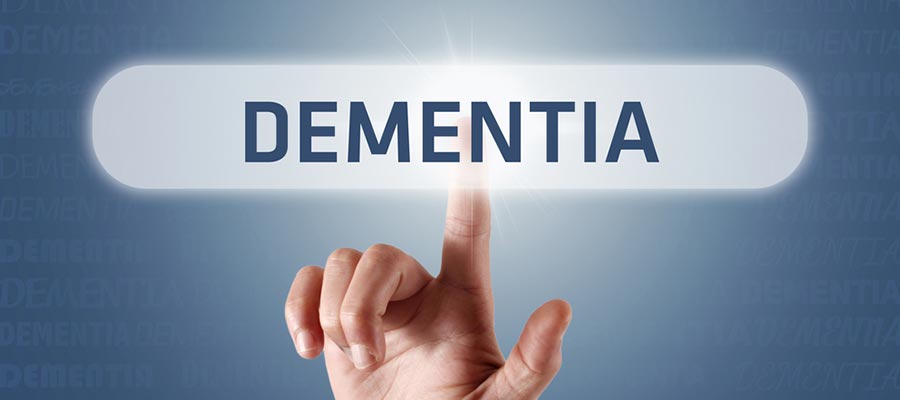

Table of Contents:
What are the most important components of assessment for dementia?
What is the screening process for dementia?
What questions are asked in a dementia assessment?
Assessment for dementia is a comprehensive process, as there is no single cognitive test that can diagnose the disorder causing dementia, which can stem from various root causes.
Dementia is a general term describing conditions associated with the loss of memory, reasoning, language, problem-solving, and other cognitive abilities that can significantly impact daily life. These changes can be gradual or swift, affecting all aspects of an individual’s life and livelihood.
Given the diverse group of diseases that can cause dementia, diagnosing the exact condition and its type can be challenging and involves a thorough review of presenting symptoms. Providers need to determine the root cause and type of dementia to influence the best course of action for treatment to improve health outcomes.
Cognitive tests are a primary component of a dementia assessment. These tests aim to identify individuals who may need a full, comprehensive evaluation for dementia.
Cognitive tests measure various mental abilities, including short- and long-term memory, awareness of place, time, and people, language and communication skills, simple math skills, problem-solving abilities, visual and spatial skills, ability to follow instructions, concentration, and attention.
These tests can range from brief to complex and often involve a series of questions that require both written and verbal responses.
The screening process for dementia is complex and involves a series of different tests to establish a comprehensive scope of a patient’s cognitive function. Determining the need for dementia screening typically starts with observing changes in memory or cognitive abilities that interfere with an individual’s ability to function.
These changes can be identified by the individual, family members, or loved ones. Common signs that may prompt a dementia screening include forgetting appointments or important events, getting lost in familiar places, personality changes, difficulty with familiar tasks, and symptoms of depression.
Other concerning signs might include chronic disease deterioration without explanation, forgetting family members, disorientation in familiar areas, balance problems, and frequent falls. A review of these signs and symptoms is essential to aid the screening tests in establishing a diagnosis of dementia. Once a need for screening is identified, a variety of office-based assessments are used to establish cognitive functionality.
These assessments often include neuroimaging and laboratory tests. Additionally, patients will undergo a physical examination, a review of medication and health history, a neurological exam, and more.
This comprehensive approach helps in accurately diagnosing dementia and understanding its impact on the individual’s cognitive abilities.
Questions asked in a dementia assessment are tailored to the individual’s needs or specific concerns raised by them or their family members when they begin to notice cognitive declines.
Generally, cognitive tasks in the assessment measure a wide range of mental abilities and specific memories. This can include questions about basic information like the individual’s address, the current date, and the name of the current president.
Simple problem-solving or math questions might also be asked to evaluate cognitive functionality. Other questions will involve a detailed review of symptoms. The specialist will discuss when the symptoms occur, what specific symptoms are present, their frequency and severity, when they began, and if they seem to be triggered by any specific factors.
This comprehensive discussion helps establish a clear picture of the individual’s experience with cognitive concerns, aiding in a more accurate diagnosis and appropriate treatment plan.
Early treatment intervention can help individuals living with dementia and deteriorating cognitive function to manage their condition and improve their quality of life while minimizing many of the associated risks to health and wellness associated with untreated dementia.
Dementia screening and assessment is available at iVIE. For more information, contact us or book an appointment online. We are located at 11600 Washington Pl, Suit 104A, Culver City, CA 90066. We serve patients from Culver City Los Angeles CA, Downtown LA, Beverly Hills CA, Marina del Rey CA, Venice CA, Santa Monica CA, and surrounding areas.
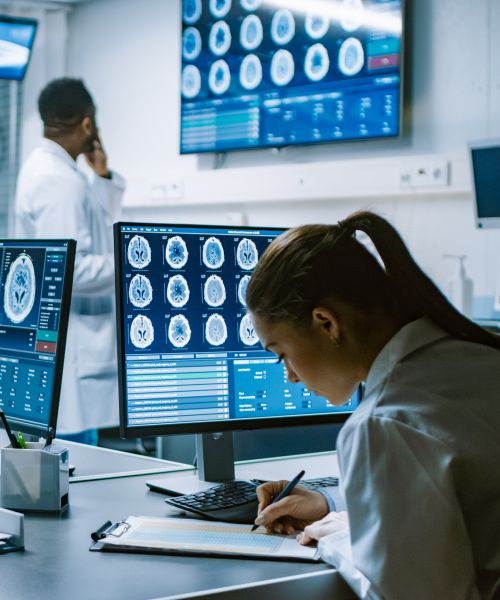
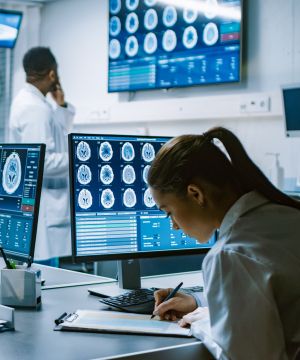
Additional Services You May Need
▸ Dementia Screening
▸ Aneurysm Screening
▸ Spine MRI
▸ Whole Body MRI Screening
▸ MRI Brain Screening
▸ Brain PET
▸ Work/Sport Spine Injury Diagnosis
▸ Work/Sport Brain Injury Diagnosis
▸ Whole Body PET For Cancer
▸ MRA Brain Screening


